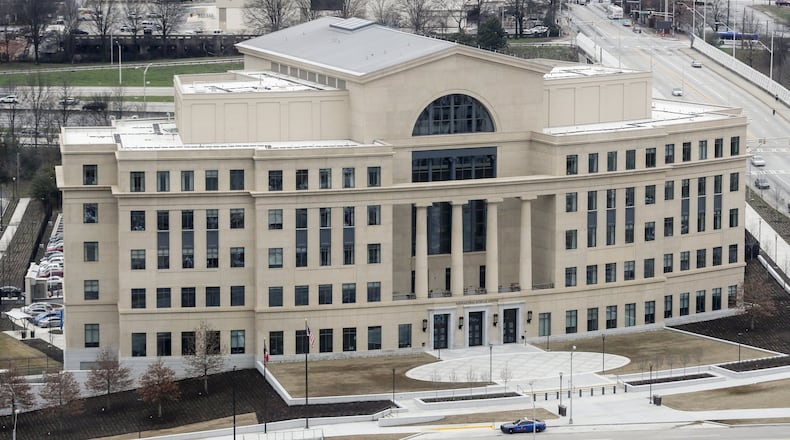The Georgia Supreme Court has overruled two decades of its own precedent by deciding that a criminal defendant’s guilty plea can stand in cases where a judge failed to advise the defendant of all the rights they waived when pleading guilty.
In a unanimous opinion issued Tuesday, the court said it was wrong to have invalidated guilty pleas in cases where defendants were not expressly told about each of the rights they waived.
The court declined Tuesday to set aside the guilty plea and life sentence of Donald Green in the shooting death of Andre Winder, after a Fulton County judge failed to tell Green that he was waiving his right to be protected from self-incrimination.
“The record shows that Green entered that plea of his own free choice, and that when he entered it, he was aware of the relevant circumstances and the likely consequences of pleading guilty, including the charges to which he was pleading, the various rights that he would waive by doing so, and the range of punishments to which he would be exposed,” the court said.
In correcting its past errors, the court looked to a landmark decision of the U.S. Supreme Court from 1969, which specified three rights a defendant waives when pleading guilty – the right to a jury trial, the right to confront adverse witnesses and the right to be protected from self-incrimination.
In that case, Boykin v. Alabama, the U.S. Supreme Court held that a guilty plea is only valid if it’s made voluntarily and intelligently.
The Georgia Supreme Court said Tuesday that it went astray in the 1990s by deciding that the Boykin decision meant a defendant had to be told about those three rights they were waiving when pleading guilty, in order for the plea to stand.
Justice Andrew A. Pinson, who authored the court’s 66-page opinion, said Georgia justices subsequently decided several other cases incorrectly using that logic.
“The problem is that neither Boykin itself nor any (U.S.) Supreme Court decision that followed it even hints at that formalistic rule, and virtually every court across the country to have considered it — federal and state alike — has rejected that reading of Supreme Court precedent,” Pinson wrote. “Today, we correct course.”
The proper standard for reviewing the validity of a guilty plea was set out by the Georgia Supreme Court in a 1982 decision, which seemed to have been forgotten, Pinson noted.
The court said its more recent decisions reversing a guilty plea because the defendant was not informed that they were waiving each of the so-called Boykin rights “must be overruled.”
It said that both California and Louisiana had adopted and then abandoned similarly improper rules.
“A guilty plea is valid … if the record affirmatively shows that it is voluntary and intelligent under the totality of the circumstances,” the court said. “The failure to specifically advise the defendant of his right against self-incrimination – or any of the three rights listed in Boykin – on the record does not require the reversal of a guilty plea … if the record as a whole shows that the defendant’s plea was voluntary and intelligent.”
Winder was fatally shot in February 2000 during an invasion of his Lawton Street home, case records show. Green and two co-defendants were indicted the following month on counts of malice murder, felony murder, aggravated assault with a deadly weapon, armed robbery and associated gun possession.
Green pleaded guilty in September 2000 to felony murder and aggravated assault as part of a deal with prosecutors. More than 20 years later, he was granted the right to file an untimely appeal.
During his plea hearing, Green indicated that he was aware of the five charges he faced and the maximum sentences for those charges, as well as the two charges he was pleading guilty to and the recommended sentence as part of his plea deal, the state Supreme Court said. It said Green was informed by the trial judge and his then-lawyer of a variety of the rights he was waiving.
Steve Phillips, who represented Green in the appeal, told The Atlanta Journal-Constitution that the court’s decision is significant in that it overturns long-standing settled law in Georgia. He said he is considering whether to seek the court’s reconsideration or a review by the U.S. Supreme Court.
Green, 73, is a father and “model prisoner” who thought he would be eligible for parole in 2014, Phillips said.
“Notwithstanding today’s opinion we continue to hope for his eventual release and that he doesn’t die locked away in a Georgia prison,” he said.
Representatives for Attorney General Chris Carr and Fulton County District Attorney Fani Willis, who represented the state in the appeal, did not immediately respond to questions about the ruling.
About the Author
Keep Reading
The Latest
Featured




